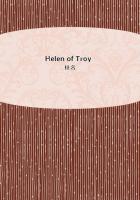Ultimate Scientific Ideas §15. What are Space and Time? Two hypotheses are current respectingthem: the one that they are objective, the other that they are subjective.
Let us see what becomes of these hypotheses under analysis.
To say that Space and Time exist objectively, is to say that they areentities. The assertion that they are non-entities is self-destructive: non-entitiesare non-existences; and to allege that non-existences exist objectively isa contradiction in terms. Moreover, to deny that Space and Time are things,and so by implication to call them nothings, involves the absurdity thatthere are two kinds of nothing. Neither can they be regarded as attributesof some entity. Not only is it impossible to conceive any entity of whichthey are attributes, but we cannot think of them as disappearing, even ifeverything else disappeared; whereas attributes necessarily disappear alongwith the entities they belong to. Thus as Space and Time can be neither non-entitiesnor the attributes of entities, we are compelled to consider them as entities.
But while, on the hypothesis of their objectivity, Space and Time must beclassed as things, we find that to represent them in thought as things isimpossible. To be conceived at all, a thing must be conceived as having attributes.
We can distinguish something from nothing, only by the power which the somethinghas to act on our consciousness. The effects it mediately or immediatelyproduces on our consciousness we attribute to it, and call its attributes;and the absence of these attributes is the absence of the terms in whichthe something is conceived, and involves the absence of a conception. What,now, are the attributes of Space? The only one which it is possible to thinkof as belonging to it is that of extension, and to credit it with this isto identify object and attribute. For extension and Space are convertibleterms: by extension, as we ascribe it to surrounding objects, we mean occupancyof Space; and thus to say that Space is extended, is to say that Space occupiesSpace. How we are similarly unable to assign any attribute to Time, scarcelyneeds pointing out. Nor are Time and Space unthinkable as entities only fromthe absence of attributes. There is another peculiarity, familiar to mostpeople, which equally excludes them from the category. All entities actuallyknown as such, are limited; and even if we suppose ourselves either to knowor to be able to conceive some unlimited entity, we necessarily in so classingit separate it from the class of limited entities. But of Space and Timewe cannot assert either limitation or the absence of limitation. We findourselves unable to form any mental image of unbounded Space; and yet areunable to imagine bounds beyond which there is no Space. Similarly at theother extreme: it is impossible to think of a limit to the divisibility ofSpace; yet equally impossible to think of its infinite divisibility. And,without stating them, it will be seen that we labour under like impotencesin respect to Time. Thus we cannot conceive Space and Time as entities, andare equally disabled from conceiving them as either the attributes of entitiesor as non-entities. We are compelled to think of them as existing, and yetcannot bring them within those conditions under which existences are representedin thought.
Shall we then take refuge in the Kantian doctrine? Shall we say that Spaceand Time are forms of the intellect, -- "a priori laws or conditionsof the conscious mind?" To do this is to escape from great difficultiesby rushing into greater. The proposition with which Kant's philosophy setsout, verbally intelligible though it is, cannot by any effort be renderedinto thought -- cannot be interpreted into an idea properly so called, butstands merely for a pseud-idea. In the first place, to assert that Spaceand Time are subjective conditions is, by implication, to assert that theyare not objective realities: if the Space and Time present to our minds belongto the ego, then of necessity they do not belong to the non-ego. Now it isimpossible to think this. The very fact on which Kant bases his hypothesis-- namely that our consciousness of Space and Time cannot be suppressed --testifies as much; for that consciousness of Space and Time which we cannotrid ourselves of, is the consciousness of them as existing objectively. Itis useless to reply that such an inability must inevitably result if theyare subjective forms. The question here is -- What does consciousness directlytestify? And the direct testimony of consciousness is, that Time and Spaceare not within the mind but without the mind; and so absolutely independentthat we cannot conceive them to become non-existent even supposing the mindto become non-existent. Besides being positively unthinkable in what it tacitlydenies, the theory of Kant is equally unthinkable in what it openly affirms.
It is not simply that we cannot combine the thought of Space with the thoughtof our own personality, and contemplate the one as a property of the other-- though our inability to do this would prove the inconceivableness of thehypothesis -- but it is that the hypothesis carries in itself the proof ofits own inconceivableness. For if Space and Time are forms of intuition,they can never be intuited; since it is impossible for anything to be atonce the form of intuition and the matter of intuition. That Space and Timeare objects of consciousness, Kant emphatically asserts by saying that itis impossible to suppress the consciousness of them. How then, if they areobjects of consciousness, can they at the same time be conditions of consciousness?
If Space and Time are the conditions under which we think, then when we thinkof Space and Time themselves, our thoughts must be unconditioned; and ifthere can thus be unconditioned thoughts, what becomes of the theory?
It results, therefore, that Space and Time are wholly incomprehensible.














